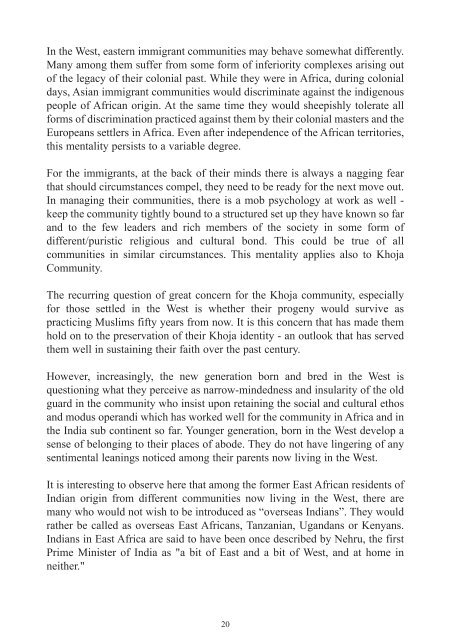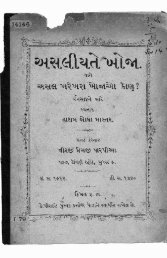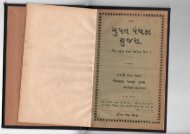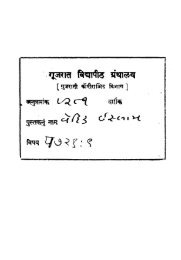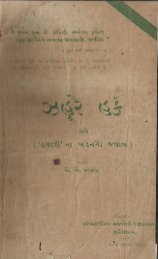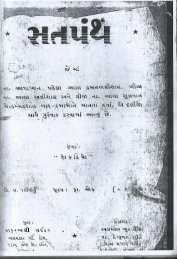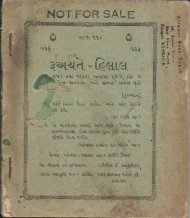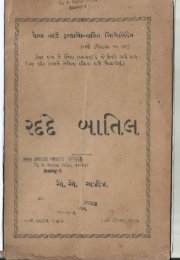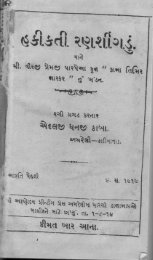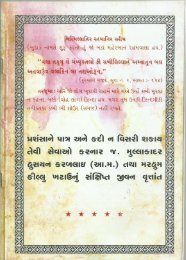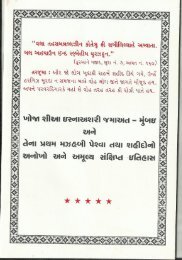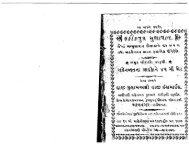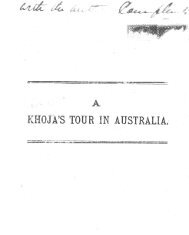Sowing and Reaping of Destiny
You also want an ePaper? Increase the reach of your titles
YUMPU automatically turns print PDFs into web optimized ePapers that Google loves.
In the West, eastern immigrant communities may behave somewhat differently.<br />
Many among them suffer from some form <strong>of</strong> inferiority complexes arising out<br />
<strong>of</strong> the legacy <strong>of</strong> their colonial past. While they were in Africa, during colonial<br />
days, Asian immigrant communities would discriminate against the indigenous<br />
people <strong>of</strong> African origin. At the same time they would sheepishly tolerate all<br />
forms <strong>of</strong> discrimination practiced against them by their colonial masters <strong>and</strong> the<br />
Europeans settlers in Africa. Even after independence <strong>of</strong> the African territories,<br />
this mentality persists to a variable degree.<br />
For the immigrants, at the back <strong>of</strong> their minds there is always a nagging fear<br />
that should circumstances compel, they need to be ready for the next move out.<br />
In managing their communities, there is a mob psychology at work as well -<br />
keep the community tightly bound to a structured set up they have known so far<br />
<strong>and</strong> to the few leaders <strong>and</strong> rich members <strong>of</strong> the society in some form <strong>of</strong><br />
different/puristic religious <strong>and</strong> cultural bond. This could be true <strong>of</strong> all<br />
communities in similar circumstances. This mentality applies also to Khoja<br />
Community.<br />
The recurring question <strong>of</strong> great concern for the Khoja community, especially<br />
for those settled in the West is whether their progeny would survive as<br />
practicing Muslims fifty years from now. It is this concern that has made them<br />
hold on to the preservation <strong>of</strong> their Khoja identity - an outlook that has served<br />
them well in sustaining their faith over the past century.<br />
However, increasingly, the new generation born <strong>and</strong> bred in the West is<br />
questioning what they perceive as narrow-mindedness <strong>and</strong> insularity <strong>of</strong> the old<br />
guard in the community who insist upon retaining the social <strong>and</strong> cultural ethos<br />
<strong>and</strong> modus oper<strong>and</strong>i which has worked well for the community in Africa <strong>and</strong> in<br />
the India sub continent so far. Younger generation, born in the West develop a<br />
sense <strong>of</strong> belonging to their places <strong>of</strong> abode. They do not have lingering <strong>of</strong> any<br />
sentimental leanings noticed among their parents now living in the West.<br />
It is interesting to observe here that among the former East African residents <strong>of</strong><br />
Indian origin from different communities now living in the West, there are<br />
many who would not wish to be introduced as “overseas Indians”. They would<br />
rather be called as overseas East Africans, Tanzanian, Ug<strong>and</strong>ans or Kenyans.<br />
Indians in East Africa are said to have been once described by Nehru, the first<br />
Prime Minister <strong>of</strong> India as "a bit <strong>of</strong> East <strong>and</strong> a bit <strong>of</strong> West, <strong>and</strong> at home in<br />
neither."<br />
20


